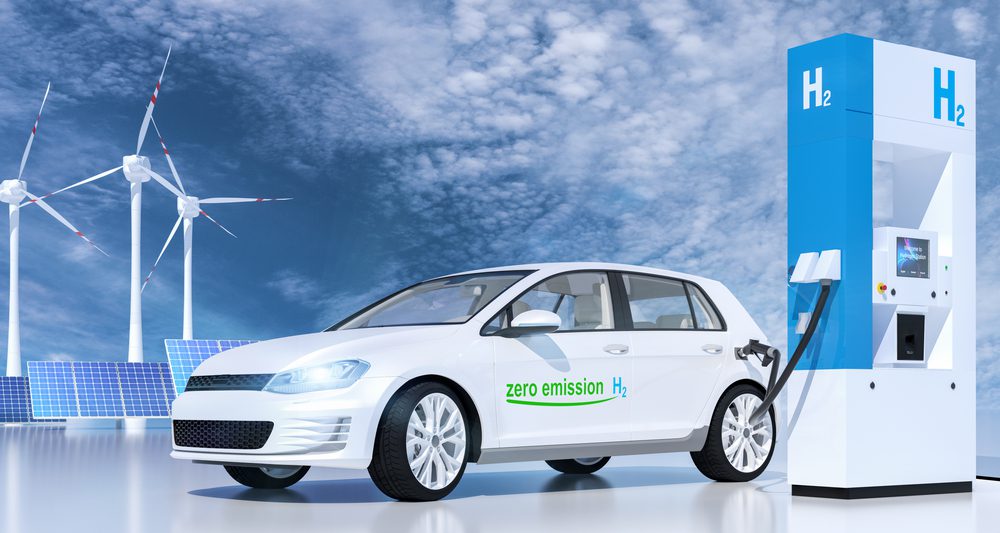
Can you tell us more about Dover Fueling Solutions?
Dover Fueling Solutions (DFS) is part of Dover Corporation and is a leading provider of advanced energy dispensing equipment, electronic automation and payment systems, automatic tank gauging and subscription solutions to fueling and convenience retail customers worldwide.
Comprised of the brands Wayne Fueling Systems, Tokheim, OPW Fuel Management Systems, ClearView, ProGauge, Fairbanks, AvaLAN Networks and LIQAL, DFS is dedicated to offering a broad range of vehicle power solutions that include both conventional fuel as well as clean energy products with solutions such as gasoline, diesel, biodiesel and ethanol as well as LNG, H2, LPG, CNG and EV charging.
Headquartered in Austin, Texas, DFS has a strong global manufacturing and technology development presence that includes facilities in Brazil, China, India, Italy, Poland, Belgium, Sweden, the Netherlands, the United Kingdom, and the United States.
At DFS, we’re driven by our values and a shared purpose, but what really fuels us is our people. They’re the heart of our company. We’re taking fueling and convenience retail to the next level, and we are passionate about cultivating excellence in our products, our solutions, and our people.
What is the DFS mission statement?
Our mission at DFS is clear: we are a leading global provider of advanced customer-focused technologies, services and solutions in the fuel and convenience retail industries. We are enabling the evolution of the consumer experience in fueling and convenience retail.
We’re a team committed to doing great things, collaborating to deliver exceptional business results for our customers.
What has been your own journey to your current role?
I’m currently vice president and general manager of Clean Energy and Global Platforms at Dover Fueling Solutions. I moved into this role at the beginning of this year following on from previous roles where I’ve been leading Dispenser Engineering and our Dispenser Business Unit.
I’ve been in the industry for more than 15 years now and my background in marketing, product management and project management has served as a core asset throughout.
In my current role, I lead the strategy and vision for developing new and innovative products and solutions for clean energy and component platforms for conventional fuels – around the world.
How is DFS enabling the move towards decarbonisation?
We are dedicated to offering cleaner and more environmentally friendly ways to power vehicles. To help contribute to a greener planet, we have invested in a broad range of products and solutions that support the infrastructure build for a variety of clean fuels, including LNG, H2, LPG, CNG and electricity, alongside conventional fuel dispensers that have a lower impact on the environment e.g., AdBlue®, additive etc.
DFS has provided dispensing solutions for the retail fueling industry for over 130 years, and clean energy has always played a big part in our product offering.
We are dedicated to supporting our customers, regardless of the energy types they work with. This requires us to follow market trends closely to make sure we have the right solutions in place at the right time.
A manufacturer of CNG fuel dispensers for European markets for decades, where does DFS see the place for CNG within the transport sector?
Statistically, CNG is 30% more efficient than petrol, with a vehicle able to travel the same distance on 6/7 litres of CNG compared with 10 litres of petrol. As with any fuel, pricing is subject to global market conditions, but it remains the cheapest non-renewable energy source. Its nozzle-to-pump refuelling method is also a clear user benefit.
There are currently approximately 4,159 refilling stations across Europe, which makes it more of an option for fleet owners as opposed to the everyday motorist. This is not to say that CNG doesn’t have mainstream potential, with the fueling option accepted in Europe for passenger vehicles.
There is a lot of discussion about replacement trucks and what the future fuels will be. What should distributors be investing in when replacing fleet trucks?
As motorists continue to embrace greener transport, many drivers will be considering which clean fuel is best for them. For fleet managers and sustainability directors, many will be wondering which is best for business.
The fuels leading the way include hydrogen, electricity, CNG and LNG, each with their own advantages. However, it all comes down to the business sector, government legislation and initiatives and available infrastructure per country.
Hydrogen would appear to be a strong choice for long-haul, heavy-duty vehicles and other commercial transport, and we are starting to see the first fuel cell trucks appearing on the European market.
To fully flourish, however, greater infrastructure is needed to support future fuel development. Hydrogen investment is growing but not as quickly as that of electric vehicles (EVs). Market leaders, Germany, provide a neat case study with total German hydrogen refueling stations expected to reach 85 by 2025 and 300 by 2030. Despite this, cumulative hydrogen investment lags behind that currently made in EVC.
One other thing to note, when it comes to this future fuel, is cost. In Germany, the average price of fuel per 100km is 7.60 euros for hydrogen, compared with 9.05 euros for diesel and 11.74 euros for petrol.

Being a cleaner fossil fuel, LNG is another strong alternative, producing 40% less CO2 than coal and 30% less than oil. It’s clean and quiet burning, while its familiar refilling method appeals to drivers.
LNG infrastructure may be embryonic, but it is fast growing. There are around 635 LNG stations on the continent, with the bulk concentrated in Western Europe, and its cost-competitive benefits means it has strong potential for commercial transport.
When it comes to electric vehicle charging (EVC) it is predicted in various reports and studies that, by 2030/2035, every second car sold across Europe will be powered by electricity.
Massive investments are being made across EMEA as countries pour billions into charging infrastructure. Dependable, renewable, energy infrastructure is required to feed the grid with a need to create a consumer-centric recharging model that serves the practical needs of EV drivers. As local governments begin to embrace EVC technology, companies can deliver high-quality fast chargers to the market.
Over the next few years, what do you see as major challenges to the industry, and what are the positives?
As the world, and the transport industry, move towards net zero, it is likely all four energy options (hydrogen, electricity, CNG and LNG) will be an integral part of the decarbonisation mix, each with its own distinct benefits.
These will vary from country to country depending on infrastructure development and investment, as well as government initiatives and legislation.
It’s clear that there is certainly a move toward a more environmentally conscious consumer, and we are seeing our customers actively investing in lower-carbon fuels. This trend will undoubtedly continue, but we should also note that the transition of a car fleet takes many years.
So, for us at DFS, it’s important to stay focused on conventional fueling products and solutions at the same time as we work to support the new energy types entering the market.
What was the best piece of advice you have been given in this industry?
There is a long list to choose from, but I think the best piece of advice, which I like to repeat, is to always make sure you really understand what the customer needs.
I believe this applies to most, if not all, industries but it should always be at the front of your mind.
And finally, what do you enjoy most about working in this business?
This is a business that has always presented great variation but even more so now with decarbonisation and the clean energy movement.
This variation presents a lot of opportunities, as well as challenges, and I really enjoy the close collaboration with our customers, partners, and internal teams as we work to bring new products and solutions to the market.
